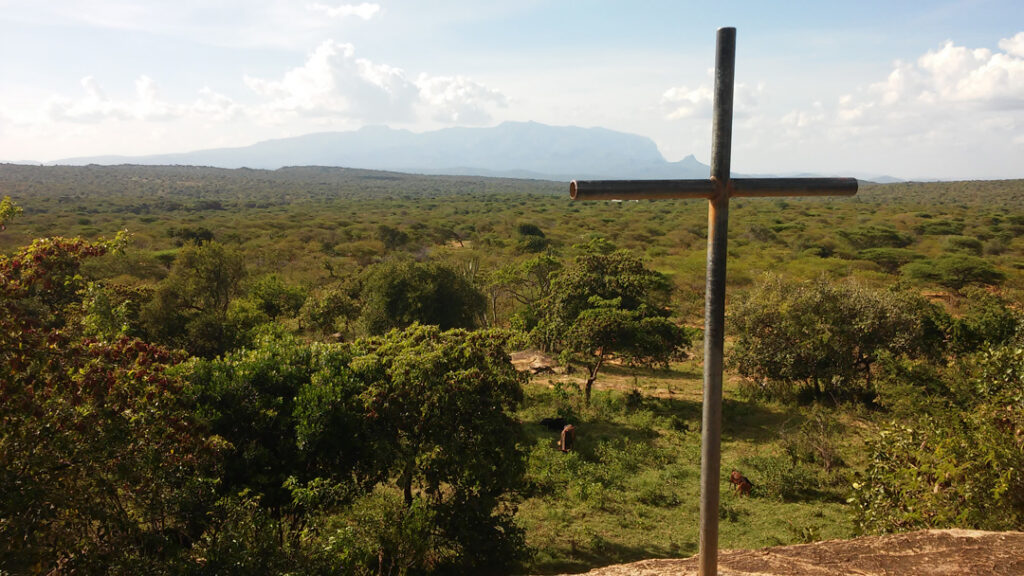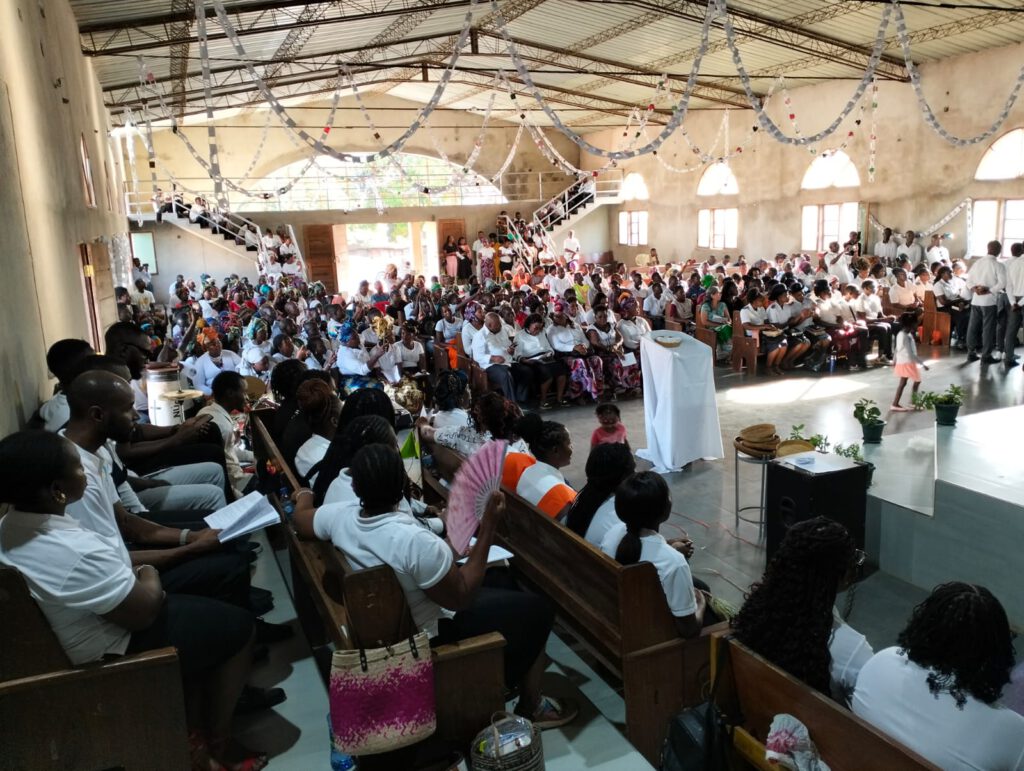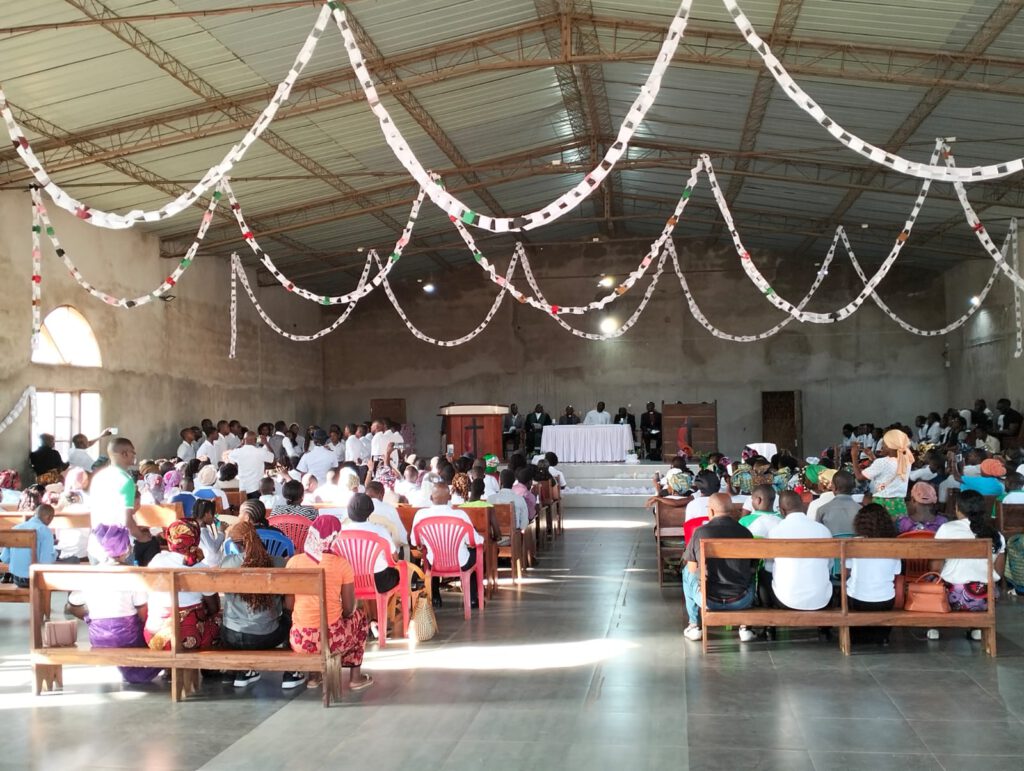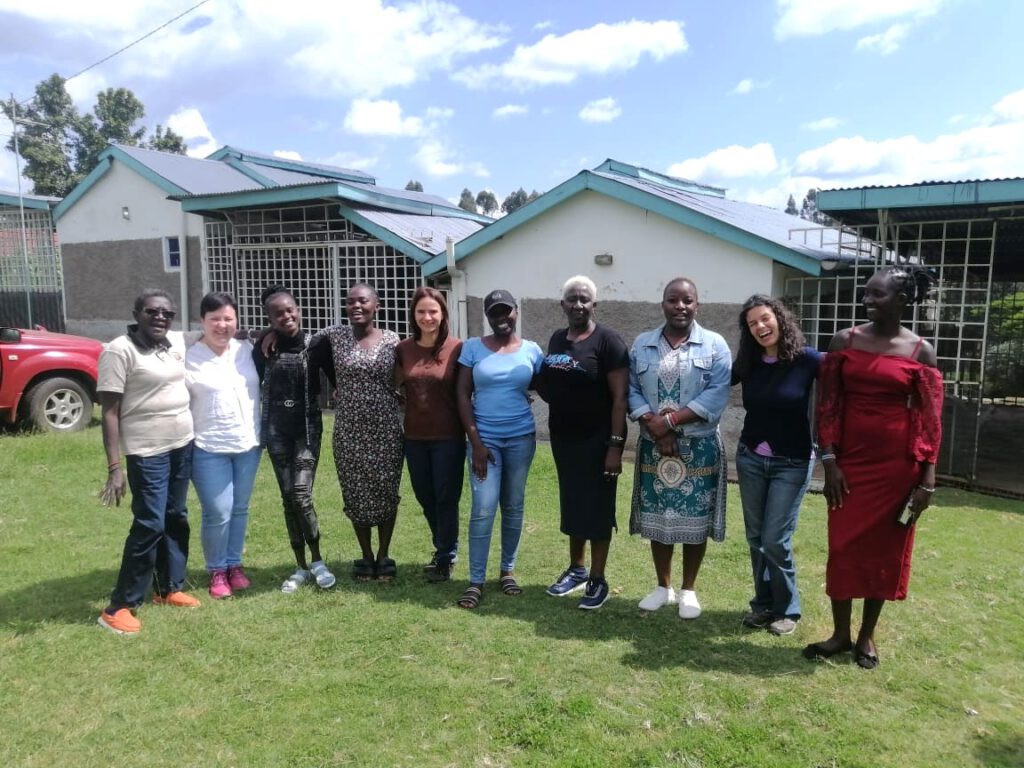
For the Comboni Missionary Sisters who are celebrating their Inter-Capitular Assembly: so that, inspired by the breath of the Spirit, they may live this event as a kairós in the process of reconfiguration that they are now. Lord, hear us.
On the evening of Friday, September 26, Casa Familiar Rural de Açailândia (CFR) held the 13th edition of its traditional Peasant Philosophy Night. This annual celebration aims to highlight the knowledge and awareness of the peasant people.
The event, organized by the school’s pedagogical coordination, administration, and student body, had as its theme this year “CFR, 20 Years Planting Knowledge and Harvesting Wisdom: rural education, youth, and family farming.” The evening was filled with memorable moments, such as the opening ceremony, the reading of the speech by the Comboni Missionary from Congo, Father Joseph Mumbere, the artistic presentation by the first-year class, and the awarding of agricultural technician degrees to the graduates, followed by a spectacular fireworks display accompanied by tears and hugs.
The Rural Family Houses, a model that originated in France and was brought to Brazil in the late 1960s, are structured around alternating pedagogy, general and technical training, and family succession. The CFR in Açailândia was founded by Comboni Lay Missionaries in 2001, welcoming its first classes of young people from the countryside in 2005. Despite facing many challenges, it has already trained more than 200 students, children of the peasant class from various municipalities in the region.
Xoancar, CLM
Throughout history, many human activities have contributed to the destruction of creation.
Today, more than ever, some of these activities take the form of a war against creation. Some bear more responsibility for this crisis than others.
However, there is hope for a peaceful earth. Isaiah 32:14-18 envisions a peaceful creation where God’s people will live only when justice is achieved.
Hope is being able to see that there is light, despite all the darkness, said Archbishop Desmond Tutu.
We cannot and must not combat climate change without working closely together.
The Laudato Si Circle of the Archdiocese of Nampula, Mozambique, in union with several Christian churches, held an ecumenical prayer service for creation on Sunday, September 21, with the theme “Peace for Creation” and the symbol “Garden of Peace,” inspired by Isaiah 32:18, as part of Creation Time. A time of prayer and action for our common home, which occurs every year from September 1 to October 4.

The service was celebrated by the Catholic Church, nine Evangelical churches, and the Laudato Si movement, with approximately 500 people in attendance.
It was an afternoon of praise, thanksgiving, and asking God for forgiveness.
We recognize the urgent call to action, and we recognize that we can only respond on the basis of faith. The season of creation is a source of strength and unity (Dr. Anne Burghardt, general secretary of the Lutheran World Federation).
We are all invited to care for the place God has given us to live.
The next interfaith meeting in Nampula is already scheduled for October 4.

Regimar Costa.
CLM Brazil in Mozambique.
First Steps on Kenyan Soil
At the beginning of June, I landed in Nairobi, the capital of Kenya. It was here that my missionary journey began – full of new challenges, learning, and encounters with people who quickly became like a second family to me. I spent the first weeks in the Provincial House of the Comboni Missionaries, where I immediately experienced the great openness and warmth of the Comboni Fathers and the community of Lay Comboni Missionaries. Thanks to their heartfelt welcome, I felt at home, which gave me courage and hope for the next stages of my mission.

Learning the Language and First Trips
One of the first challenges was the intensive study of English. Every new word opened doors for me to better understand the culture and to build deeper relationships with the people among whom I now live.
In June, an Italian missionary, Giula, joined me. Together, on the very same day, we set off for Kiteakapel – a small missionary station in the northwest of Kenya. This place, run by an international community, allowed me to see the simplicity of life, the difficulties of everyday existence, and at the same time the great hospitality and openness of the people. This experience will remain in my heart for a long time as a reminder of the great strength of community and of simple, sincere hearts.
Kariobangi – the Heart of Nairobi
The next stage was moving to Kariobangi – one of the poorest districts of Nairobi. This place is full of contrasts: alongside hardship and poverty, there is also the extraordinary energy and hope of the residents. In the parish, the Comboni Fathers and Comboni Sisters carry out their ministry. The Sisters run a vocational school for girls and a daycare center for the children of young mothers, while the Fathers are involved in pastoral care and youth animation.
The time I spent in Kariobangi was extremely valuable to me – both practically and spiritually. I saw how God works in everyday life, in simple gestures of kindness, and in sharing oneself with others.
A New Stage – Mikinduri
Since September, I have started the next stage of my mission and am now staying in Mikinduri. This new place presents me with further challenges, but also brings much joy and hope. Each day is an opportunity to get to know the local reality, to learn patience and openness, and to discover the beauty of diversity. I believe that every step of this journey leads me deeper – toward greater trust, toward better understanding, and toward true service to others.
Iza, CLM in Kenya
A new school year is beginning, and with it comes the opportunity to embark on a missionary journey.
The CLM group in Spain is organizing a meeting for all those interested. As in Spain, many other countries are open to accompanying all those with missionary concerns.
So, if you are one of them, don’t hesitate to write and ask if we are present in your country, and we will pass on your contact details to the coordination team so that you can begin your missionary journey.
Here is the announcement for this first meeting in Spain at the end of October.
There are moments that change everything… and this October could be one of them.
Then this Missionary Vocation Meeting is for you.
From October 24 to 26, we invite you to a Missionary Vocation Meeting with the Comboni Lay Missionaries. A special moment to listen, discern, look at your life with missionary eyes, and ask yourself: What does God want from me?